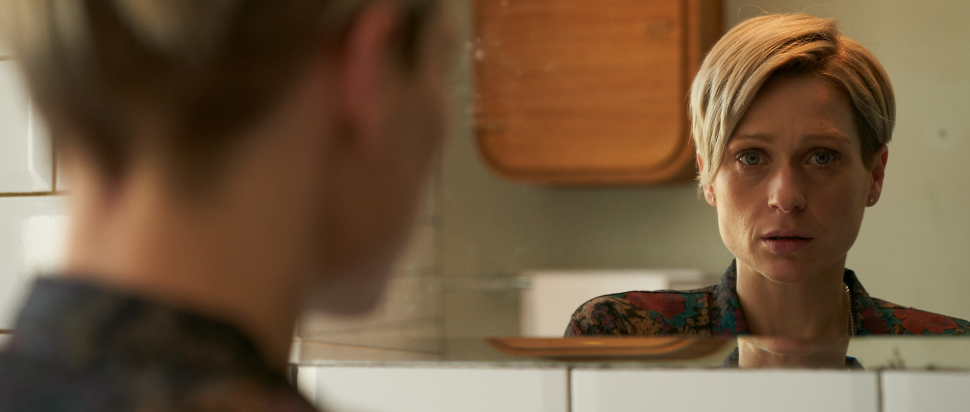Body of Water
Scottish director Lucy Brydon makes her feature film debut with this bleak, ambiguous film following a middle-aged woman with an eating disorder
An early moment in writer-director Lucy Brydon’s debut features startles in its blunt vitriol. Stephanie (Brooke), fresh out of another stint at an inpatient eating disorder facility, goes to pick up her 15-year-old daughter Pearl (Piolini-Castle) after swim practice. Pearl sees Stephanie, and keeps her head down, walking faster. It ends with Pearl storming off and Stephanie yelling futilely in the car park. To make matters more complicated, Stephanie’s mother Susan (Burton) has been caring for Pearl in Stephanie’s absence.
Body of Water unflinchingly captures the intergenerational relationships rent to shreds by eating disorders, as well as their messy, addictive reality. The film never goes into the full extent of Stephanie’s habits – a smart move for a triggering topic – though Brooke captures every moment of doubt and struggle, and makes the validation she receives from secret ‘pro-ana’ online posts palpable.
Family dinners are unbearably tense, the sound design capturing the effort behind each bite and the lighting design bouncing off Brooke’s frail frame (the actor lost weight with a nutritionist's supervision for the role). Brydon’s sensitive approach never sugar-coats the reality – indeed the film undercuts the narrative of anorexia as something rich white girls grow out of.
Body of Water is bleak, ambiguous, and leaves Stephanie’s ultimate recovery hanging in the balance. Brydon’s head-on exploration of bodies and our (dis)comfort in them marks her career as one to watch.
